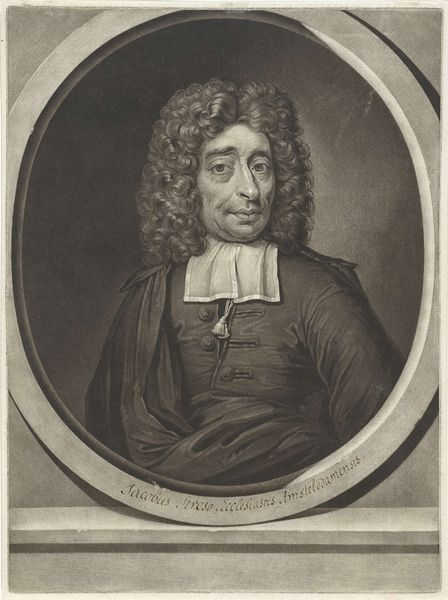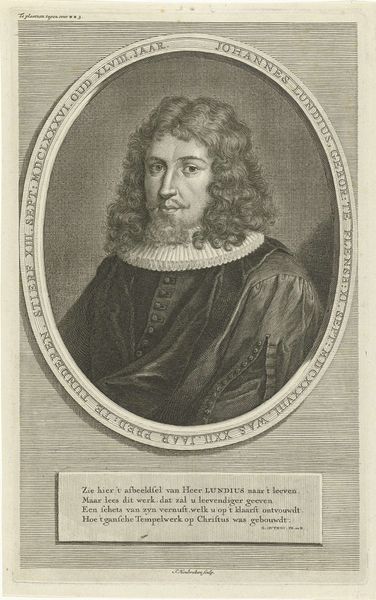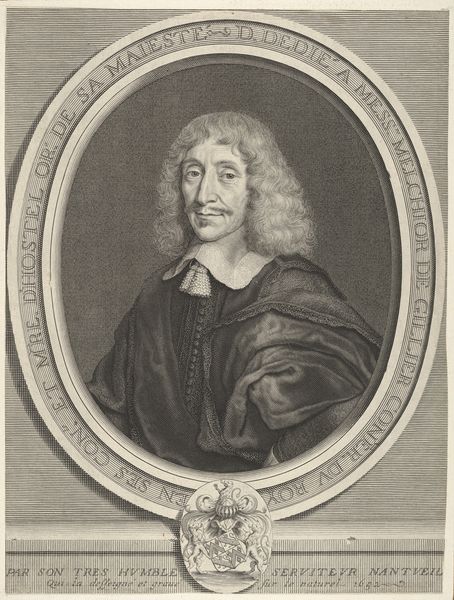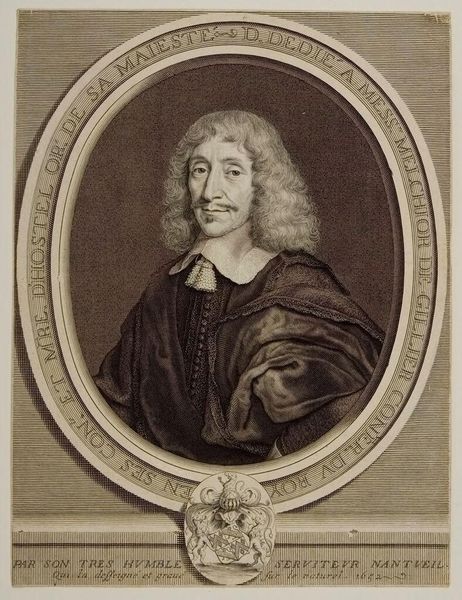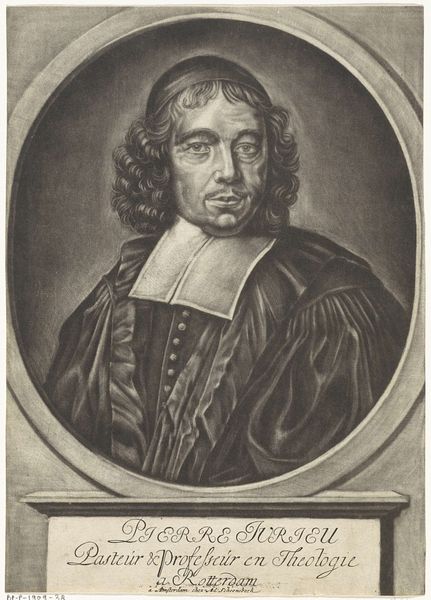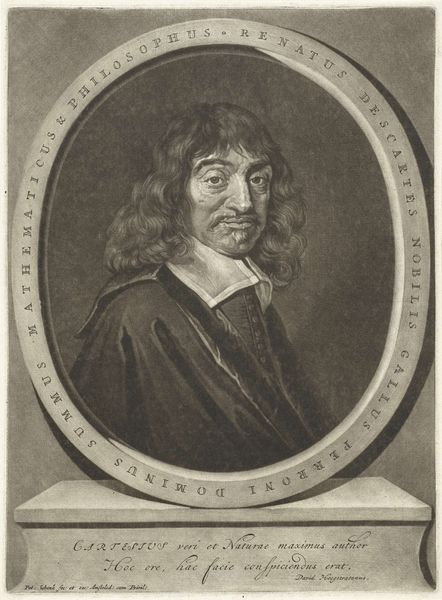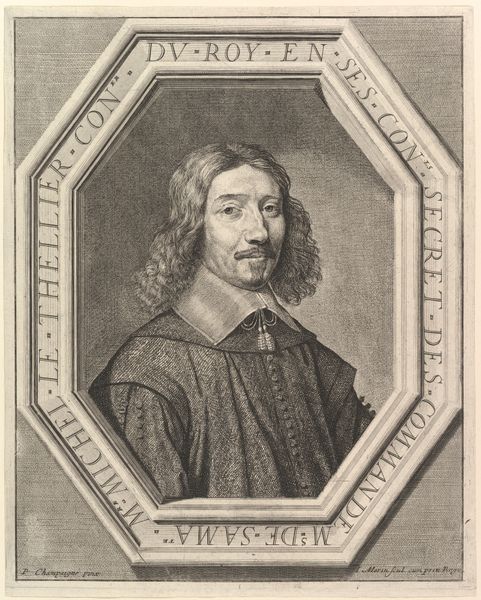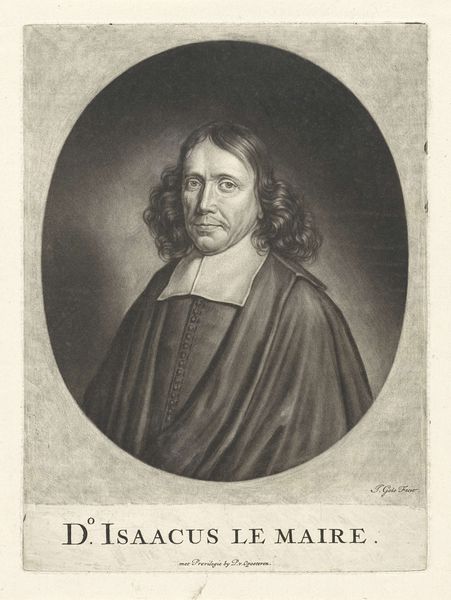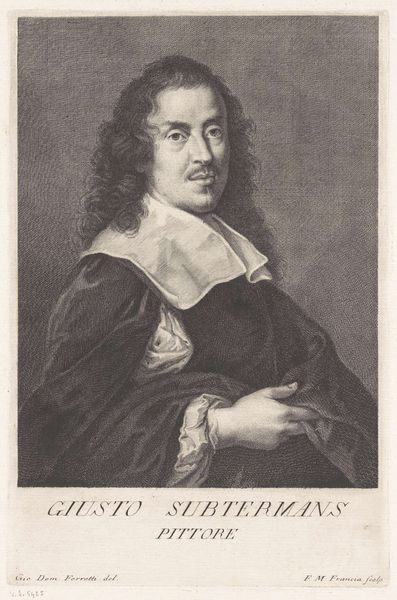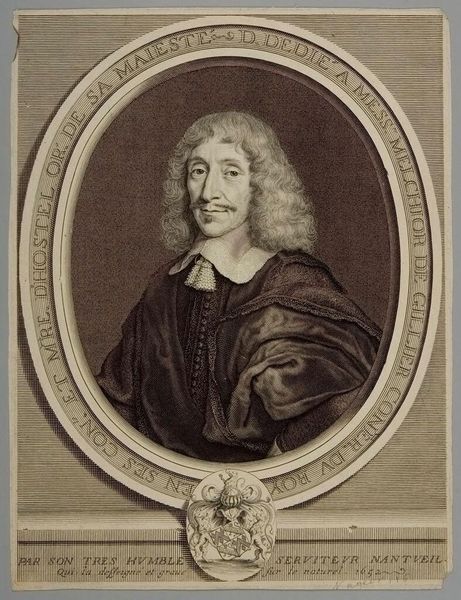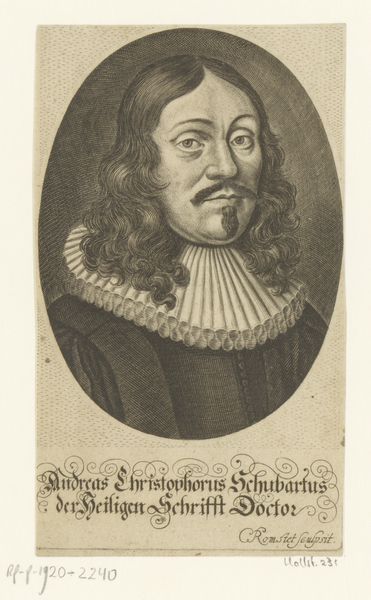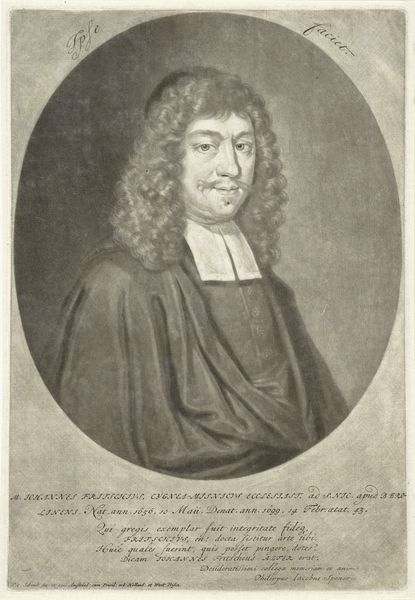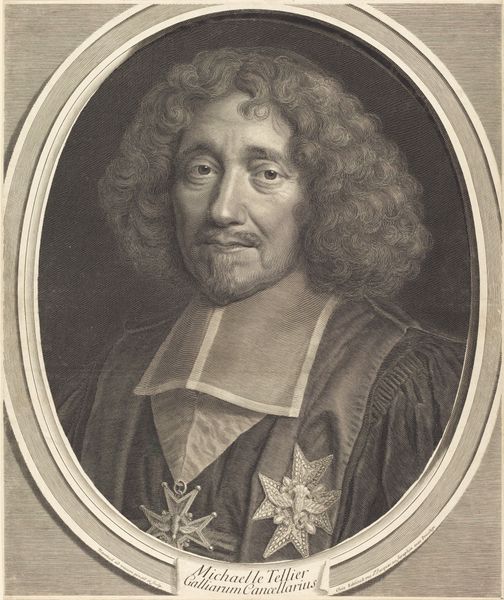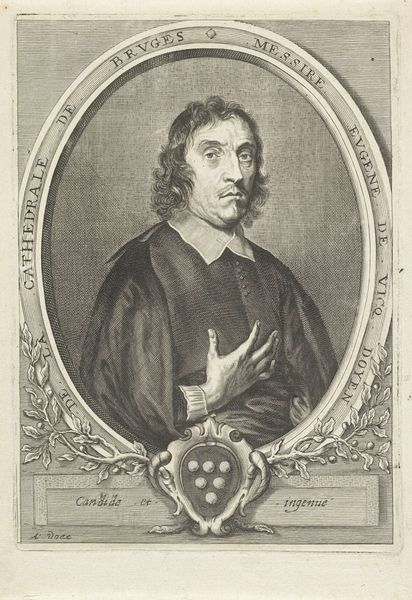
drawing, print, engraving
#
portrait
#
drawing
#
baroque
#
portrait image
# print
#
charcoal drawing
#
line
#
portrait drawing
#
engraving
Dimensions: height 245 mm, width 182 mm
Copyright: Rijks Museum: Open Domain
Pieter Schenk made this portrait of Johann Christian Olearius using etching and engraving, sometime between 1670 and 1711. These printmaking processes, both intaglio methods, involve cutting lines into a metal plate, applying ink, and then using a press to transfer the image onto paper. The fine lines and tonal variations achieved by Schenk give the portrait a striking level of detail. Notice the texture of Olearius's clothing and the delicate rendering of his facial features. Printmaking allowed for the relatively quick reproduction of images, making portraits like these accessible to a broader audience. These processes weren't born in fine art. They’re rooted in the skilled trades, disciplines governed by guild structures and tied to the commercial world. By mastering these techniques, artists like Schenk blurred the lines between craft and art, playing a key role in the rise of a visual culture that was less about unique masterpieces, and more about widespread availability and influence. Looking at this print, we should appreciate not only the skill of the artist but also the broader cultural context in which it was made, recognizing the value of technical expertise in shaping our understanding of the world.
Comments
No comments
Be the first to comment and join the conversation on the ultimate creative platform.
